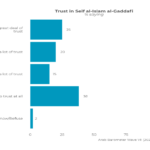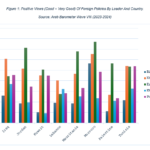Psychologists studying religiosity and spirituality (R/S) often face several challenges when conducting their research, such as collecting data from nationally representative samples, cross-cultural generalizability, statistical power, and integrated multilevel approaches. We examined one potential solution—the use of Representative, Open-Access Datasets (ROADs), which are currently underutilized. In this article, we define ROADs; discuss affordances, obstacles, and best practices in using them; document the R/S variables available in various waves of ongoing ROADs collection efforts; and delineate ways to increase usage of ROADs as a research tool in the future. This will enhance the capability of psychologists to address theory-driven questions and to better understand the role of R/S in everyday life, including social attitudes, health, and well-being, as well as social change, cohesion, and conflict. Looking forward, we recommend (a) adding more, and more nuanced, variables to future ROADs data collection efforts; (b) publishing more frequently using ROADs data; and (c) conducting workshops to promote the use of ROADs and to train researchers in secondary data analysis techniques.
View External SiteTopics
- Charity2
- Corruption118
- COVID-1969
- Democracy44
- Discrimination14
- Economy231
- Education54
- Environment37
- Extremism19
- Freedoms53
- Gender Issues161
- Governance259
- Health46
- International Relations197
- Labor Market36
- Media31
- Migration66
- Political Institutions216
- Political Participation37
- Political Systems66
- Refugees6
- Religion119
- Security35
- Social Justice45
- Wellbeing2
- Youth77


